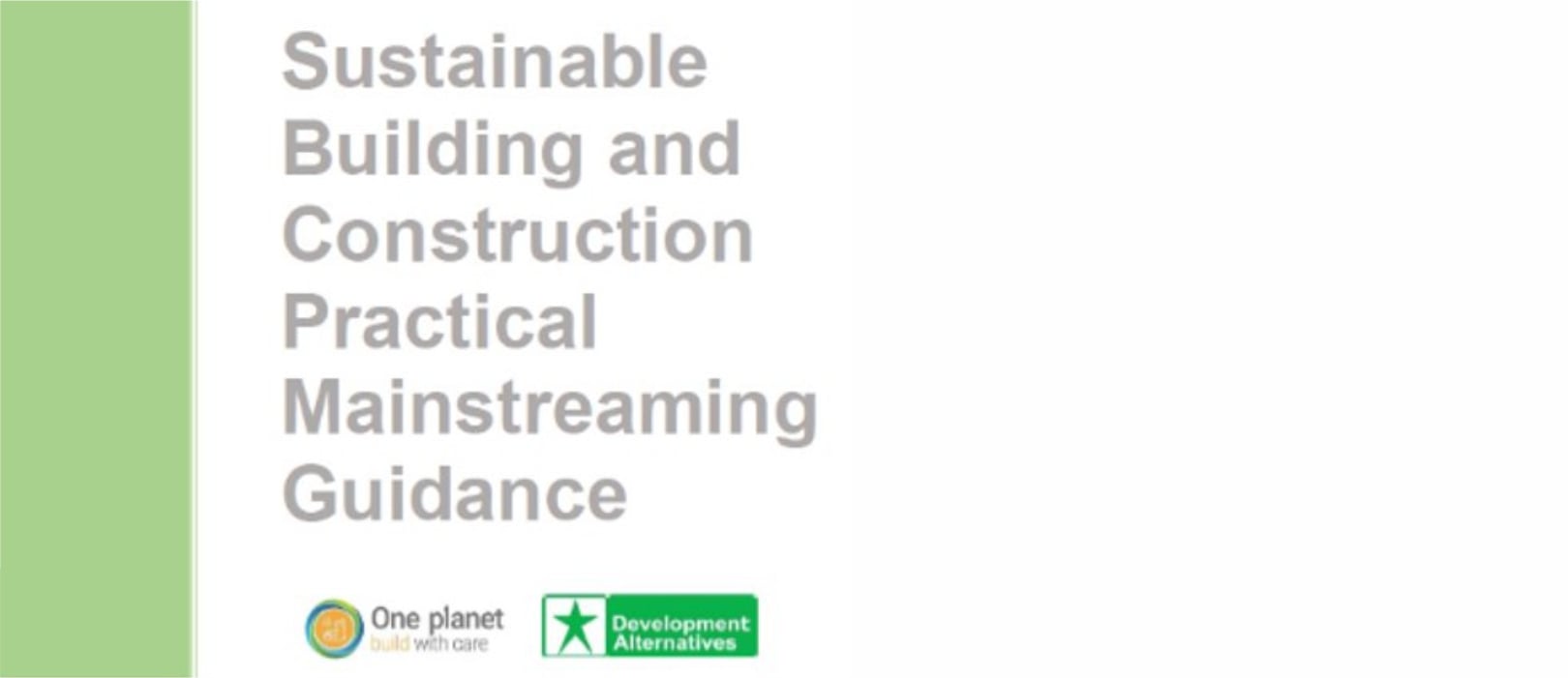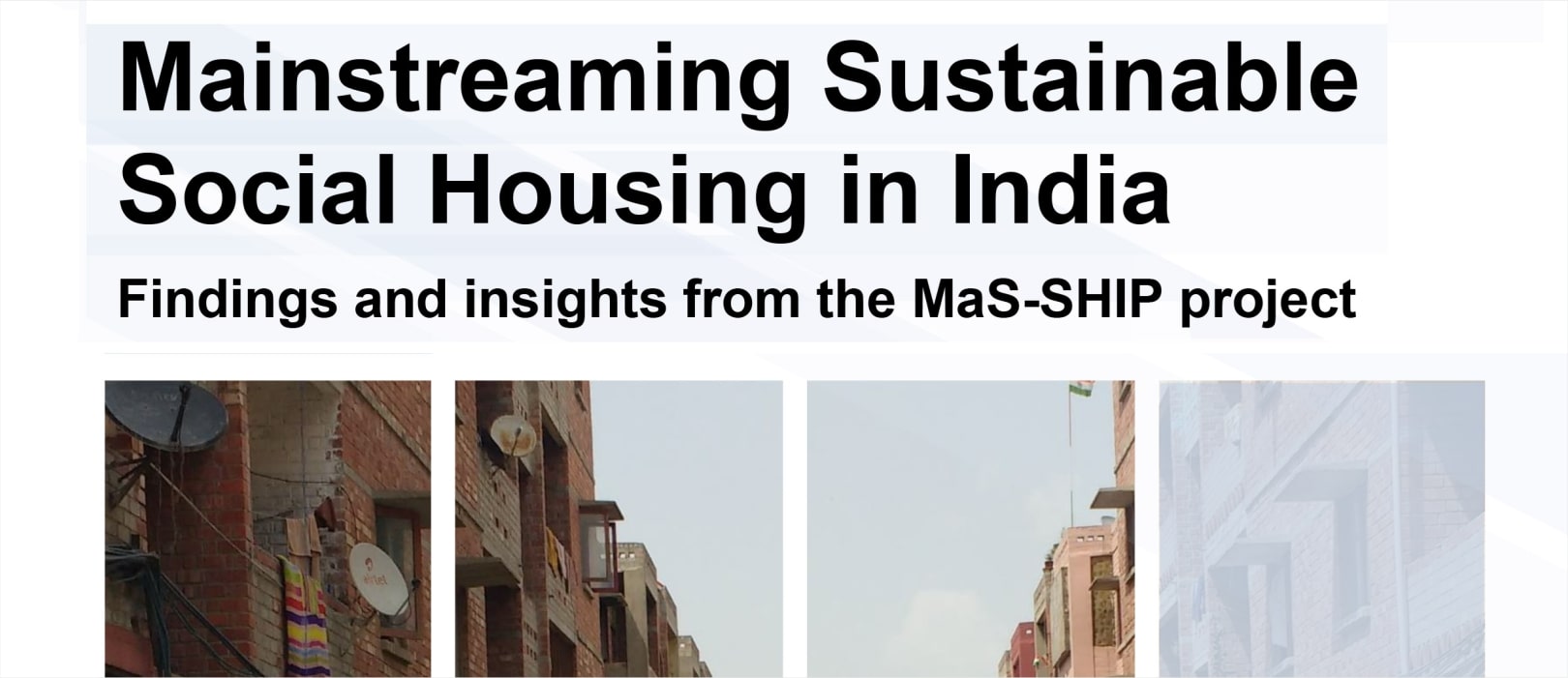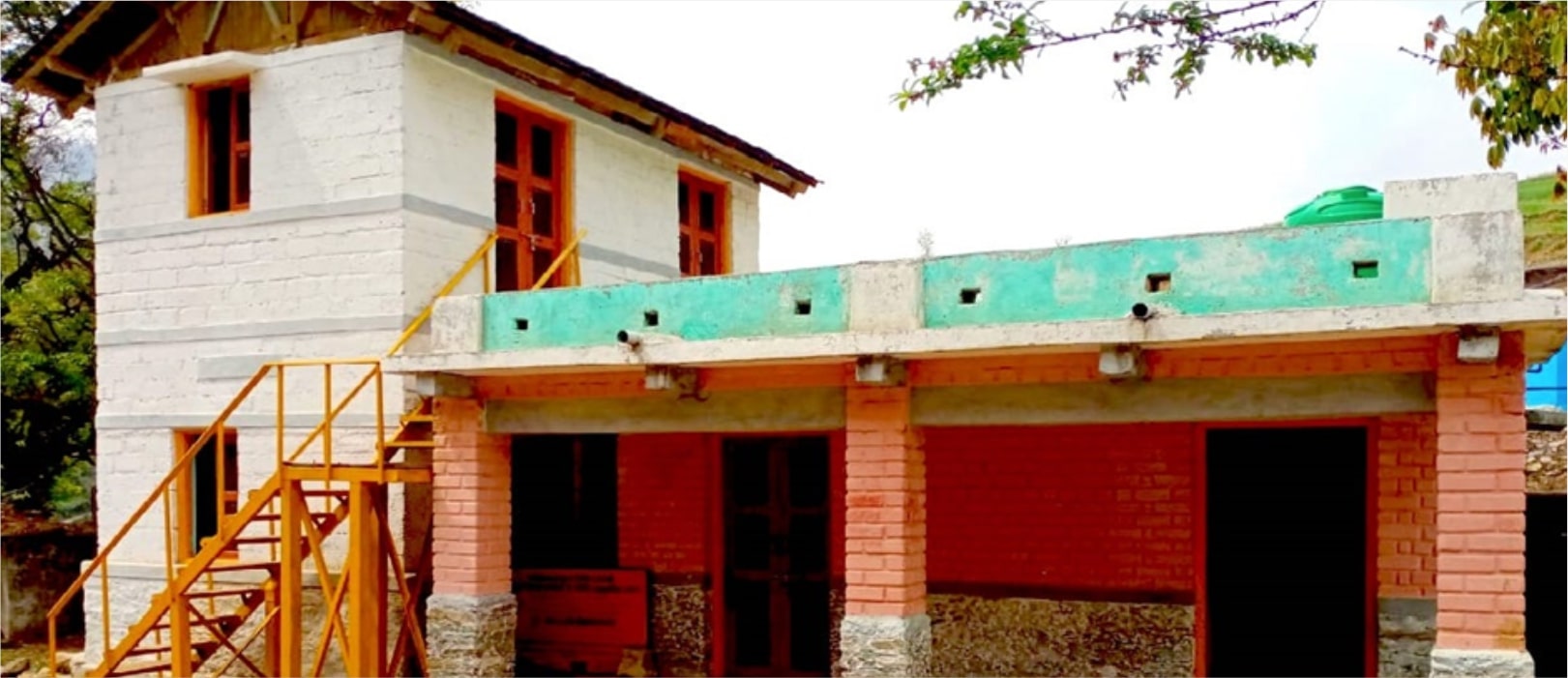
With a growing population, India confronts a major problem of sustainable housing. While the government has launched large-scale affordable housing programmes under Rajiv Awas Yojana, Jawaharlal Nehru National Urban Renewal Mission, and various state-level schemes, a lot has to be done to meet the growing demand. We work on ways to bridge the housing gap in both rural and urban areas and make affordable habitat available, especially, to the marginalised.

The One Planet Multi-Partner Trust Fund initiative aims to provide UN country teams with essential tools and information to support SBC Programme goals. This toolkit seeks to facilitate the reforming of the building and construction sectors to become more resource-efficient and climate-resilient, catering to processes and actors across the sector’s value chain, including the decision-making around the design and selection of materials as well as the implementation phase where resources are extracted and used. The toolkit puts forward a curated set of tools that allow governments and other stakeholders to gain access to, understand, and use improved assessment processes in order to make better decisions regarding the building and construction sector.

MaS-SHIP is a policy and decision support tool that enables social housing developers to integrate environmental performance, affordability, and social inclusion. The tool was developed under the 10 YFP (Ten Year Framework of Programmes) on Sustainable Consumption and Production Patterns managed by the United Nations Environment Programme (UNEP). The study produced a comprehensive data framework, tools, evidence-based knowledge, insights and policy recommendations for mainstreaming sustainable social housing in India. MaS-SHIP has produced a range of outputs including reports, tools, technology catalogues, datasets, policy briefings, Sustainability Assessment Tool (SAT), and a dedicated project website. A key output from MaS-SHIP research has been the Decision Support Toolkit (DST), an interactive and online toolkit comprising a range of outputs, datasets, tools and insights that enables multi-criteria decision making to provide comparative assessment.

Under the TIME LEARN (Technology Innovation in Mountain Ecosystem Livelihood Enhancement through Action Research and Networking) programme of the Department of Science and Technology, Government of India, Development Alternatives implemented a project in partnership with the Himalayan Environmental Studies and Conservation (HESCO), Dehradun on ‘Delivery Model for Eco-friendly Multi Hazard Resistant Construction Technologies and Habitat Solutions in Mountain States’, in Uttarkashi, Uttarakhand. The project aimed to enable large-scale dissemination of affordable, eco-friendly, and multi-hazard resistant construction technologies which are in tune with the vernacular architecture of the region and can be produced locally in a decentralised production setup that is cost effective and easy to adapt.